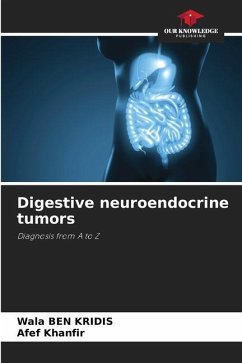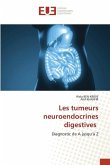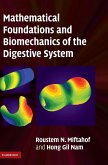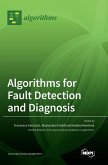Digestive neuroendocrine tumors (DNETs) are rare (less than 1% of malignant tumors). They are a heterogeneous group of tumors with common functional and morphological characteristics. In practice, a distinction is made between endocrine tumors of the digestive tract, pancreatic endocrine tumors and hepatic endocrine tumors. The circumstances in which these tumors are discovered vary, depending on whether or not they are functional. Carcinoid syndrome is the characteristic clinical manifestation of these tumors. It is triggered by the tumor's release of serotonin and other peptides (bradykinin, histamine, substance P, etc.). It occurs in only 10-20% of patients, mainly when liver metastases are present. It typically associates flushing and motor diarrhea. Carcinoid cardiopathy may be present after a long period of evolution in around a third of cases.
Bitte wählen Sie Ihr Anliegen aus.
Rechnungen
Retourenschein anfordern
Bestellstatus
Storno









